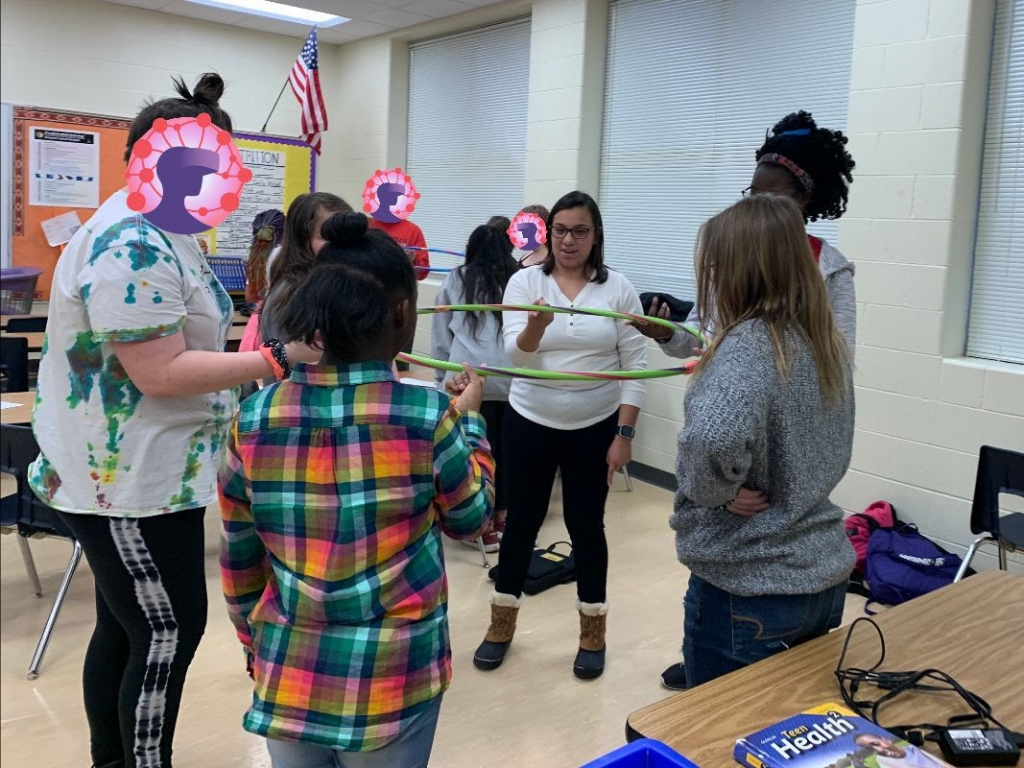
Full tuition and fees will be covered for a new graduate course on network science, through a partnership with the Worlds of Connections grant and the Nebraska Math and Science Summer Institutes at the University of Nebraska-Lincoln.
SOCI 898: Using Systems Thinking in Network Science will be offered online via web conferencing from June 7-18, Monday-Friday, from 8 a.m. to noon (on Zoom, with breaks).
This course is intended for middle-school and high-school STEM teachers and will apply concepts of network science to systems and system models. Teachers will explore activities designed to help students understand modeling situations and the careers that intersect with network science, as well as see how to apply concepts of systems and system models to teacher professional networks and student networks and therefore see how network connections impact teacher and student learning and risk-taking.
A big part of understanding our world is to understand connections. All sorts of things are connected via complex systems, from cell functions and gene expressions to friendship groups to infrastructure like the internet, electrical grids, and supply chains. 2020 highlighted some of these networks, from the toilet paper shortage to using social distancing and stay-at-home orders, to cut the ties between people in an effort to slow the spread of the COVID-19 virus. Understanding networks involves modeling the underlying network structure and learning about how these structures can be represented. No mathematical model can perfectly capture and explain complex systems but they can help us understand some features of the systems.
In addition to complex systems being one of the cross-cutting concepts in the Next Generation and Nebraska Science Standards, complex systems also are part of mathematical modeling, computational thinking and computer science modeling, and engineering. Thus, complex systems can be approached from an integrated STEM standpoint.
This course is meant to be introductory, and will include activities and tasks to learn foundational concepts related to network science, complex systems, and system models, as well as connections to secondary STEM classes and how these concepts can be integrated into your own secondary science, mathematics, computer science, engineering, or integrated STEM classes.
Worlds of Connections is a University of Nebraska–Lincoln-led Science Education Partnership Award (SEPA) that is funded by the National Institutes of Health (NIH). Read more about it at http://worldsofconnections.com/about-us/faq/. The project began in July 2018 and will continue through 2023.
To receive full funding for the course, the fellowship application is now open at: https://go.unl.edu/scimathapply. Start by creating an account on our CSMCE Application Portal. Be sure to select SOCI 898 from the course list in the NMSSI Summer 2021 Fellowship Application.
The Benefits of the NMSSI:
• Each course is worth 3 graduate credit hours
• Courses will be offered utilizing several instructional models to allow for flexibility in scheduling
• Enroll in one simple application as a post-bac student at https://go.unl.edu/gradapp
• Teachers can apply for a tuition fellowship at https://go.unl.edu/scimathapply
• SOCI 898 counts as an elective toward the Master of Arts for Teachers (MAT) degree from the Department of Mathematics.
Take advantage of these professional development opportunities conveniently and affordably. Join the NMSSI community and “learn in place!” Contact us at nebraskamath@unl.edu with questions. Visit the NMSSI course catalog for additional course options at: https://scimath.unl.edu/nmssi/2021/course-catalog.
More details at: https://scimath.unl.edu/nmssi